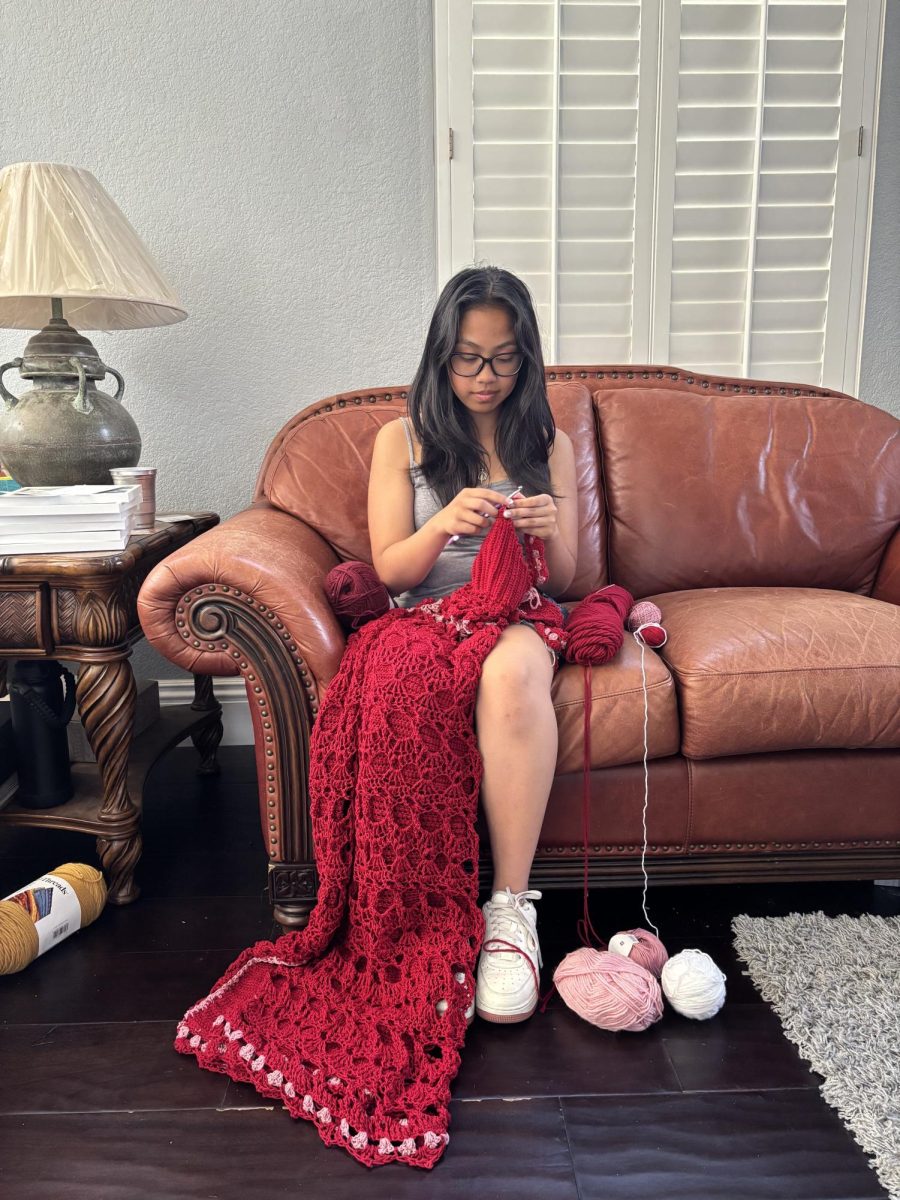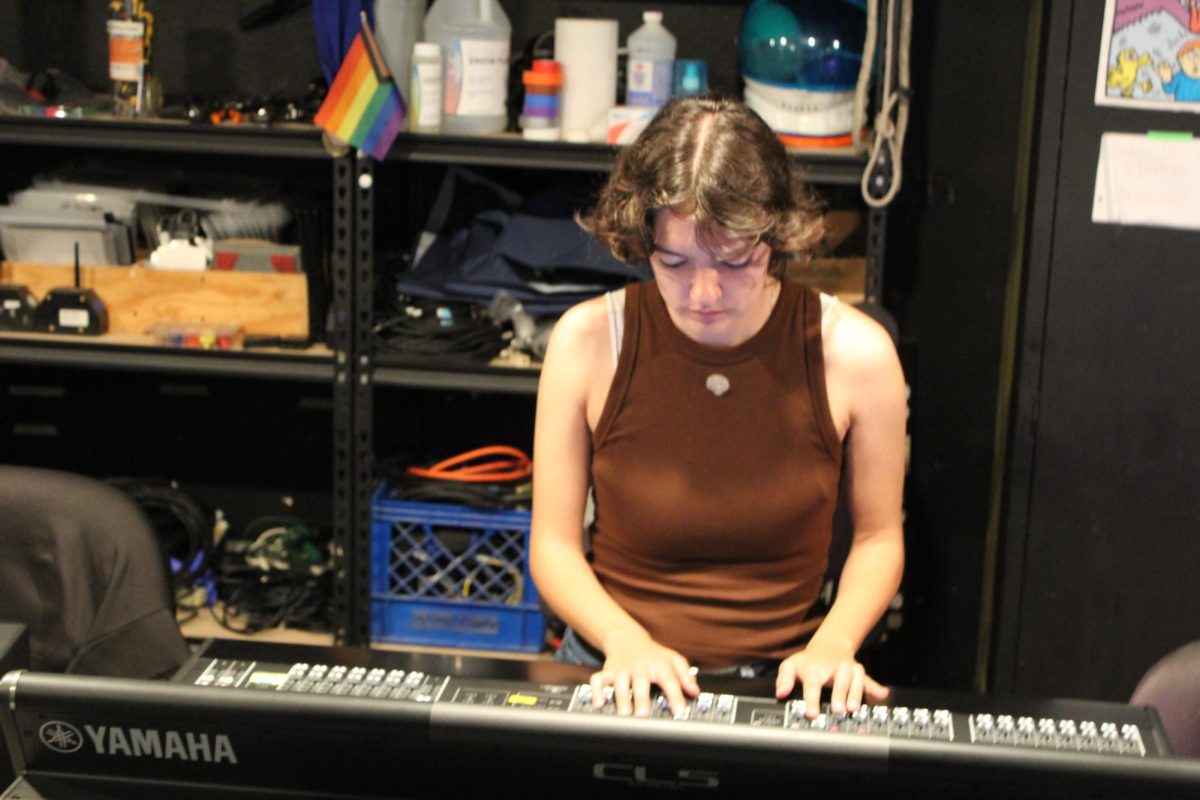
When news of COVID-19 broke from its epicenter of Wuhan, China in December, Anna Dai-Liu (11) immediately began to panic, as her father was in Wuhan on a business trip. When he returned to San Diego, Dai-Liu and her family were even more frightened, as he displayed flu-like symptoms. Fortunately, they were able to determine that Dai-Liu’s father had the flu but that it was not COVID-19. However, after that initial panic, Dai-Liu and her family began worrying about her relatives in Wuhan, as essentially all of her extended family lives there. In particular, they were concerned about her grandparents, who live alone and whose underlying medical conditions make them especially vulnerable to COVID-19.
“It was nerve-wracking when my grandparents wouldn’t pick up calls,” Dai-Liu said. “The hardest thing was not being able to regularly contact them, because of time zone differences and because we had to rely on secondary communication through my uncles and aunts, who were afraid of infecting them.”
Currently, all of Dai-Liu’s family remains safe, although she remains concerned for their safety, as the city begins to reopen and the possibility of a second wave remains. The results of Wuhan’s attempts to gradually lift restrictive measures can also help other countries identify their own plans to reduce coronavirus, while also returning to normal life. Unfortunately, on top of the economic repercussions of the coronavirus and its negative impacts on patients’ lives, it has drastically altered Chinese people’s relationship with the world.
For instance, following the initial outbreak, there was unfortunately an increase in crimes against Chinese-Americans in the United States, as as some people blamed China for mishandling the COVID-19 crisis. For instance, Democratic representative Judy Chu cited a study that found crimes against Asian Americans have increased to 100 attacks per day. Because of these hate crimes and a general fear of being blamed for the coronavirus, many Chinese-Americans’ relationship with their identity has changed, with many experiencing shame, anxiety, or other negative emotions, regarding their race.
Although Dai-Liu said she did not personally face any discrimination, she encountered more confusing questions regarding her identity.
“My parents told my sister and me to not associate ourselves with Wuhan, which was really weird because they’ve always been so adamant that we be proud of our identities,” Dai-Liu said.
Despite her parents’ words, Dai-Liu continues to feel proud of her identity and her connection to Wuhan. She changed her Instagram bio to display the words, “wuhan kid” as the pandemic broke out. Wuhan has increasingly faced discrimination and hate across the world, as The New York Times has found that other Asian countries like Hong Kong and Taiwan have refused to serve customers from mainland China and newspapers have reported the virus using headlines like “Yellow Alert” and “China Virus Panda-monium.” To help counteract these negative reactions, Dai-Liu wrote an article for the website Streetview News on her memories of Wuhan and her family.
“There’s one place I reference in my article, which is called 琴台 (qin tai, literally ‘instrument platform’)” Dai-Liu said. “The last time I visited Wuhan in 2017, I finally got to visit qin tai. It’s really quiet, which is odd in a metropolis like Wuhan, and sits right next to the Yangtze River. I went on a day that had blue skies, which is very rare, because of the pollution there. It’s kind of magical, like a pocket within all the noise.”
In her article, Dai-Liu also fondly remembered the food that she ate in Wuhan.
“I miss Wuhan food every day,” Dai-Liu said. “We have a special word in the Wuhan dialect just for the tradition of eating breakfast: 过早 (guo zao). We visited one of the more famous streets that sell these delicacies called 吉庆街 (Jiqing Jie, or ‘auspicious road’) filled with little restaurants each dedicated to making one specific food, from 热干面 (re gan mian, ‘hot dry noodles’) to 豆皮 (dou pi, bean curd).”
Dai-Liu said she feels proud of her Chinese identity, so much so that she prefers to identify herself more as an ABC, or an “American-born Chinese,” rather than as Chinese-American. This is because it places more emphasis on the fact that American is her nationality and Chinese is her ethnicity. She said she is grateful that her parents ensured that their family would remain connected to their Chinese heritage from an early age.
“I’m lucky to be able to speak Mandarin, as well as understand the Wuhan dialect, but I know that in some immigrant families they don’t teach their kids their native tongue for fear of discrimination, so I’m glad that my parents worked so hard to have me retain my Chinese roots amid all the American-ness,” Dai-Liu said.
Besides her parents encouraging her to feel pride about her cultural heritage, Dai-Liu said she has rarely felt afraid of being whitewashed or discriminated against, as San Diego is such a diverse city, although she has still encountered stereotypes in her daily life.
“Not only are there plenty of Asian stereotypes in the US, like playing piano or taking the AP Chinese exam, but in China there are stereotypes about Americans,” Dai-Liu said. “Sometimes people look down and sometimes they look up to you. It’s a little unsettling.”
When comparing Chinese and American culture, Dai-Liu has recognized that she is able to appreciate aspects from both cultures and how they work together to create her identity.
“As I’ve grown older, I’ve realized that I really value having that mixed background because it gives me a different perspective on things in the world,” Dai-Liu said. “I admire Chinese culture, because it has such a rich history and I’m proud to be American, because I have the freedom and power to be myself and to explore different things.”
Finally, although Dai-Liu said she feels that Westview, with its celebrations of different cultures, and the progressive mindset that San Diego has in general, has helped prevent discrimination, Dai-Liu had another suggestion for promoting tolerance.
“Honestly, this will probably sound cliche, but I would just ask people to not be passive bystanders if they see something happen; they should say something,” Dai-Liu said. “It’s no longer just a Chinese thing; this pandemic is a global thing and all of us are accountable for what happens next.”
Read Dai-Liu’s article: https://www.streetviewnews.com/articles/love-letters-to-wuhan-beyond-the-coronavirus



